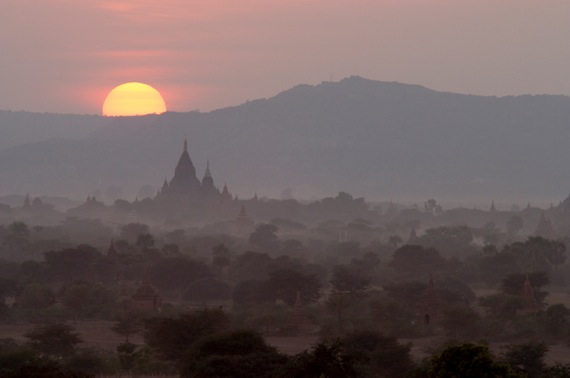
Burma – or Myanmar as it is called today. A place with a terrible history.
The welcome news today that  Aung San Suu Kyi, the elected leader of Burma (or Myanmar as it was renamed) may be shortly released from house arrest, does little, unfortunately, to make one think that the appalling crew of gangsters currently running the country will finally bow to the will of the people and place her in power. But, to some extent, the horror of what is happening in Burma today has its roots in the Second World War – and the actions of the British.
Aung San Suu Kyi, the elected leader of Burma (or Myanmar as it was renamed) may be shortly released from house arrest, does little, unfortunately, to make one think that the appalling crew of gangsters currently running the country will finally bow to the will of the people and place her in power. But, to some extent, the horror of what is happening in Burma today has its roots in the Second World War – and the actions of the British.
By the end of the nineteenth century Burma was under British rule and governed as part of the Raj until just before the Second World War when it became a British colony in its own right. Once the Second World War began, a talented Burmese man called Aung San (father of Aung San Suu Kyi) commanded the ‘Burma Independence Army’ and fought against the British. Aung San and his comrades were trained by the Japanese and accepted extensive help from them. But, politically astute, they changed sides just as the war was ending. Subsequently, the British were happy to see Aung San become a senior figure in a transitional government in 1947 – a government that was meant to oversee the transfer of power from the British to the Burmese. But that same year – at the age of 32 – Aung San was assassinated by his political enemies. His daughter – the same person who hopefully will be released from house arrest tomorrow – was just two years old.
The British left in a hurry and didn’t fulfill their obligations to the Burmese people. Many Burmese felt betrayed – most notably a Burmese ethnic group called the Karen. Many Karen had fought bravely on the British side in WW2 against the Japanese, and had heard British officers say that they would do all they could to ensure that the Karen were allowed to have an element of independence in the new, free Burma. But that never happened, and the Karen are still persecuted today.
I remember traveling into Karen occupied Burma from Thailand more than 20 years ago to meet with a number of Karen guerilla fighters engaged in the long war against the Burmese dictatorship (Burmese democracy, such as it was, had been eliminated by General Ne Win in 1962). They gently reproached me for what they saw as the British betrayal at the end of WW2 – but their fathers still clearly had fond memories of their British comrades from the war. (Because of this meeting I was subsequently to commission a film on the Karen in WW2 for the BBC history series Timewatch).
It isn’t just the Karen who are persecuted in Burma today, of course. Millions more people are suffering at the hands of one of the most repressive regimes on earth. But when I think of the bravery of Aung San Suu Kyi – and surely she is one of the most impressive individuals in the world – I also think of the sadness of the Karen. Still holding medals for gallentry won fighting on the British side in WW2, and still wondering how it could be that they have had to suffer so much since.
 Twitter
Twitter






Burma is a beautiful country with a corrupt government, but it is too late for us to make amends now. Did we behave so badly? There was a lot going on and sacrifices had to be made – off course I am deeply sorry but it is the fault of their government in the end . They are responsible for themselves.